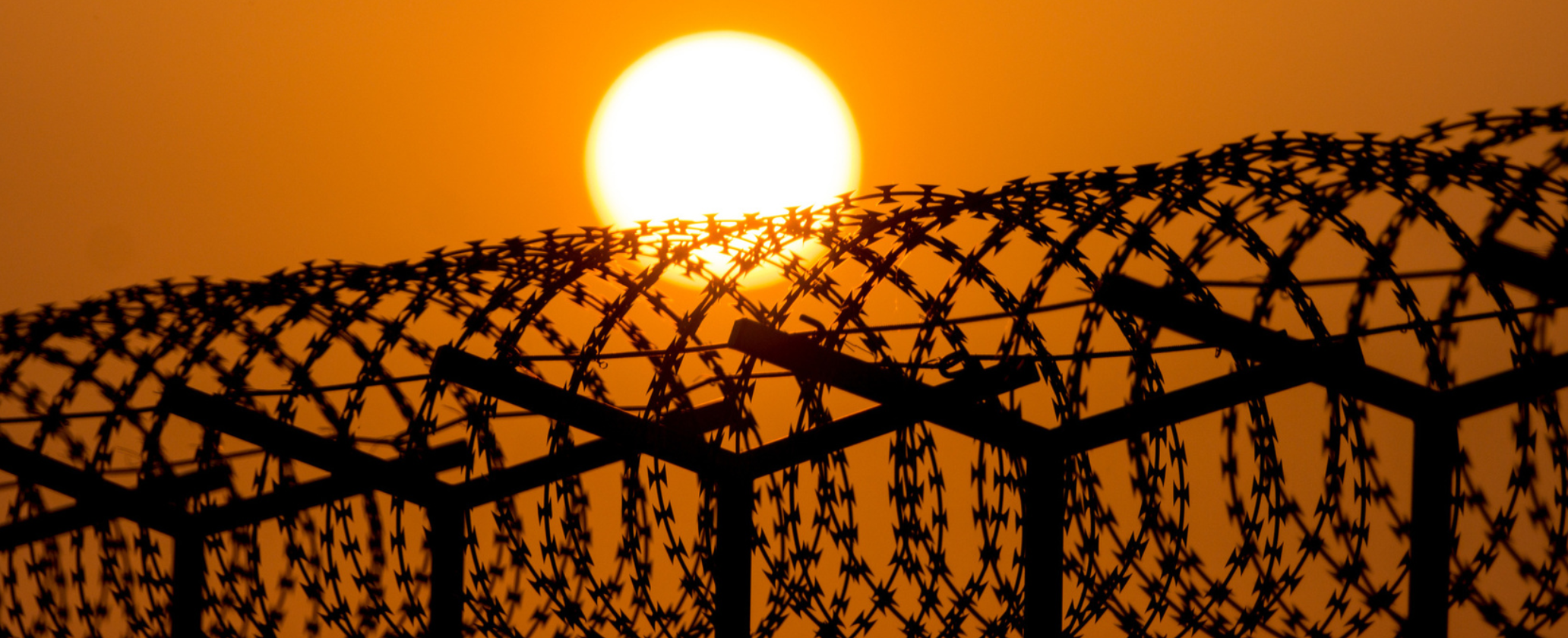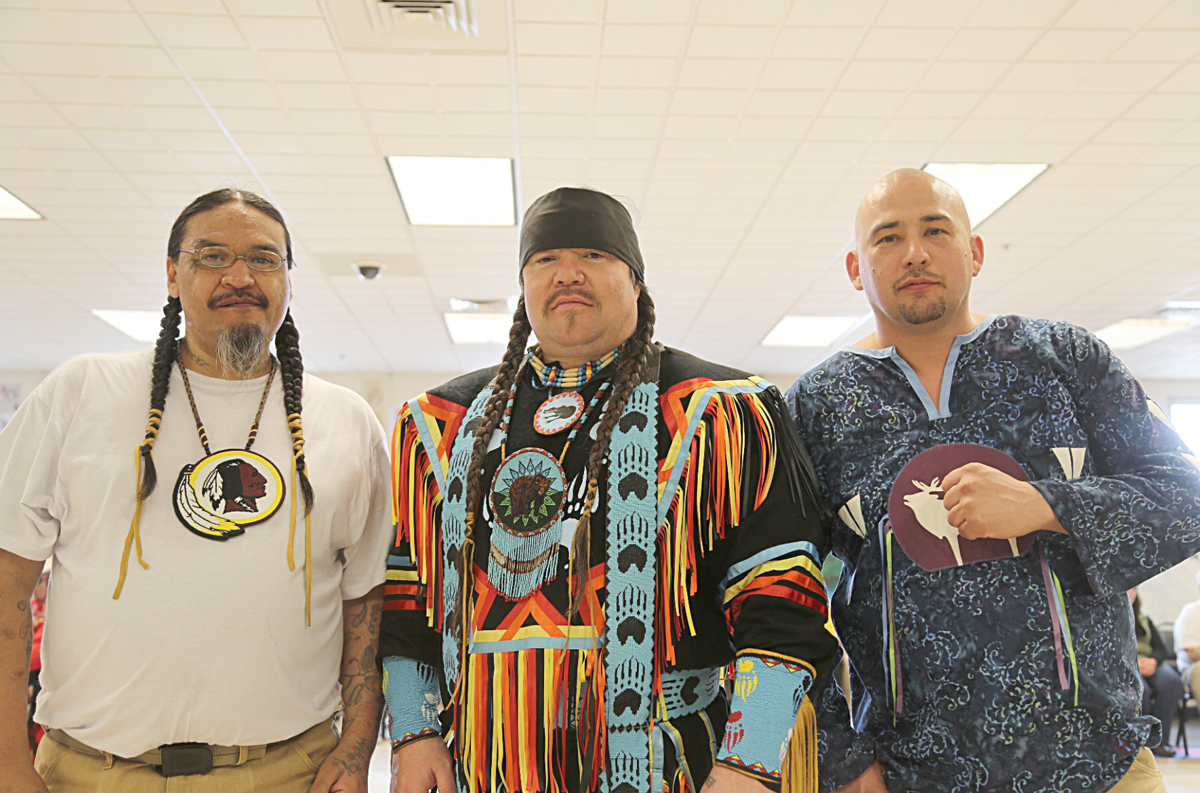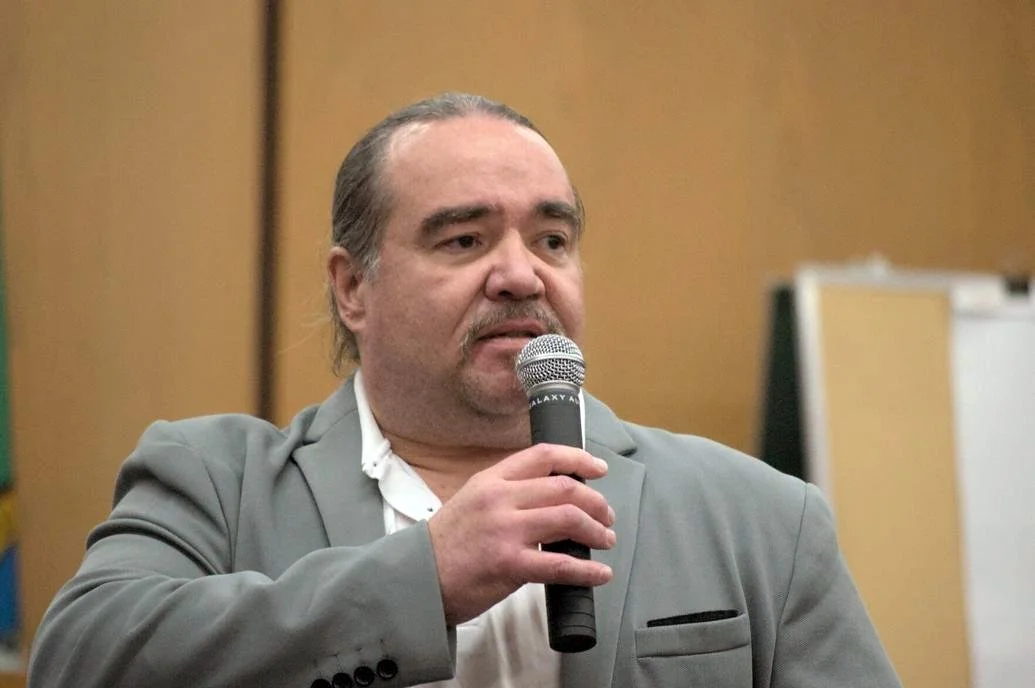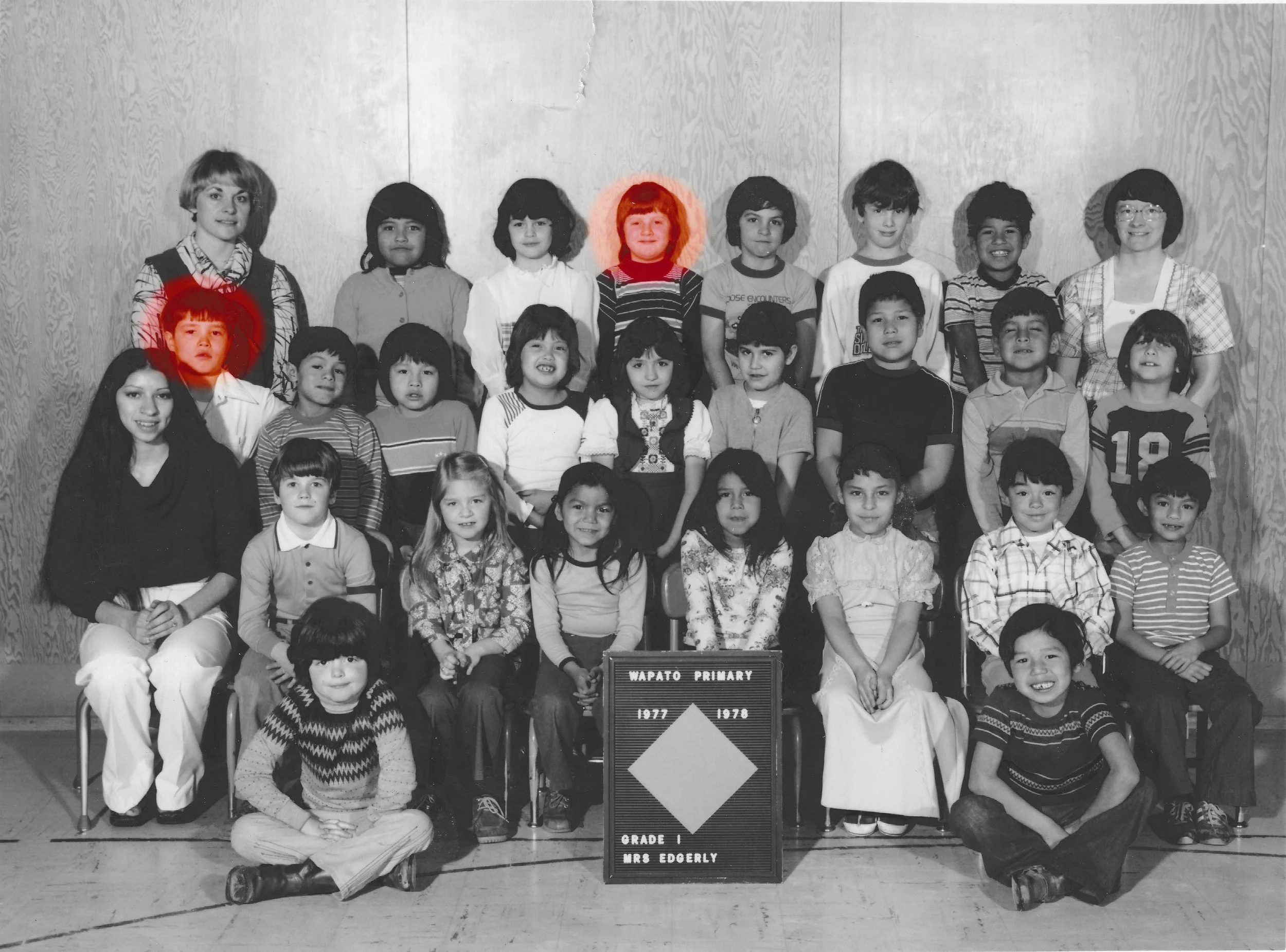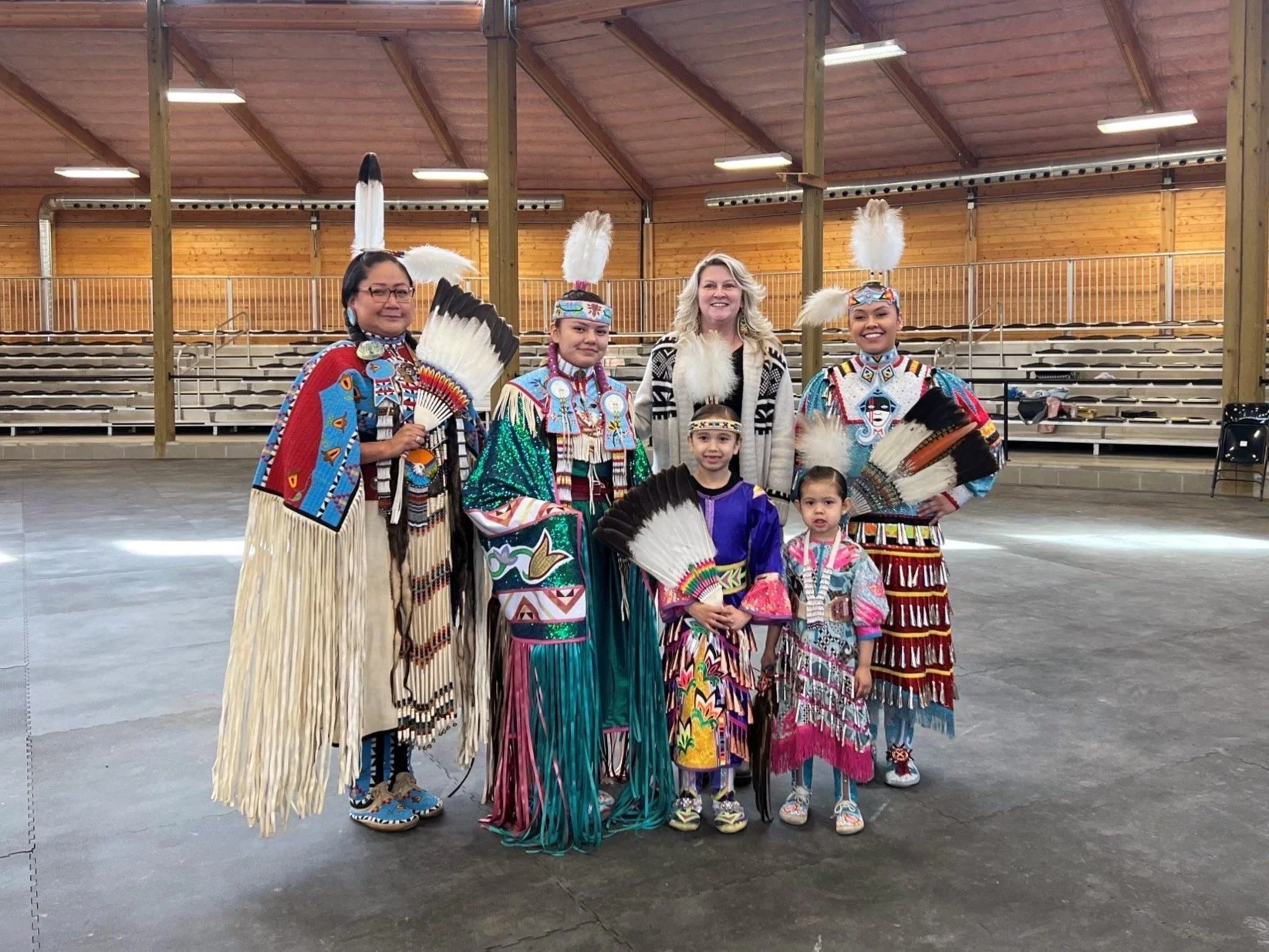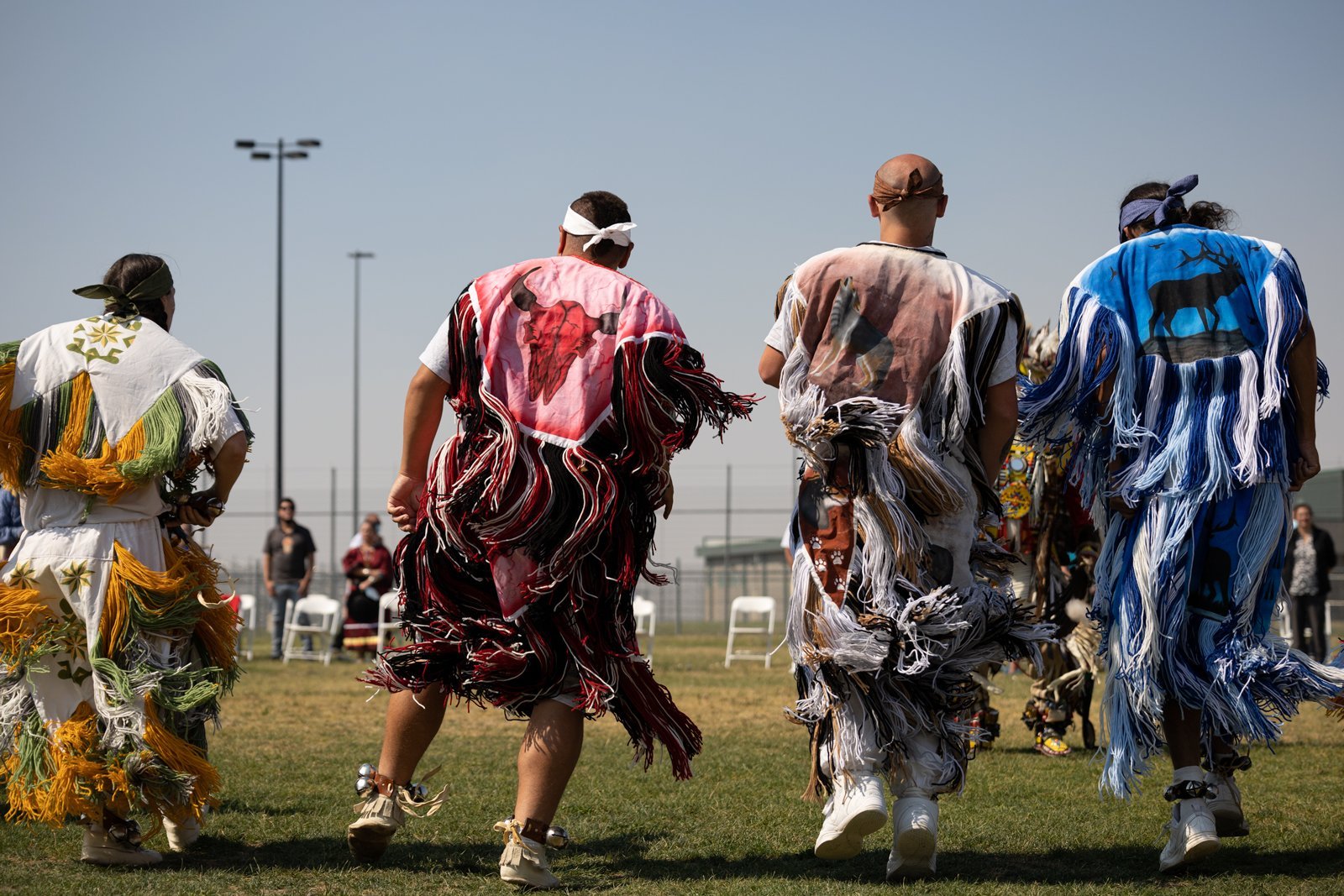
RESERVATION REDEMPTION
Follow the journey of “Chief” Marchand Rice — a Colville Citizen and tribal member who has spent over three decades behind bars for a murder he committed as a teenager.
WATCH THE TRAILER
WATCH THE TRAILER
While in prison, Chief met a wise tribal spiritual leader, Francis Cullooyah (Kalispel Tribe), who asked him point-blank: “Who do you want to be when you grow up?”
Chief replied, “What do you mean? I am in here for life.”
At that moment, Chief realized taking responsibility for his crime wasn’t enough. He immersed himself in learning about Native American culture and began to heal…
The documentary combines research data, interviews with activists, historical recounts, and in-depth sit-downs with experts to explore the prison systems, native culture, and the families affected by this systemic oppression. It will also leave audiences understanding the profound impact of one man's transformative domino effect on Native inmates and activists. The connections Chief has made to and for our communities, activists, and inmates re-entering society is profound.
Additional Details
-
We are also including how the loss of culture occurred. Catholic boarding schools implemented in the late 1800s were approved by the United States government to forcibly remove Indian children from their homes and place them in the custody of the Catholic Church. These boarding schools, along with historical laws, regulations, and institutional practices that systematically disadvantage certain groups while privileging others are responsible for the loss of Indigenous culture, missing and murdered children, and countless atrocities inflicted on Native children — atrocities still occurring today.
-
The film will interview criminal justice activists and experts to enlighten viewers on the pervasive realities of systemic oppression amongst marginalized groups, and how we can challenge these systematic disadvantages by advocating for policy change and fostering cultural shifts toward equity and justice through open discussion, rehabilitation, and education.
-
The Miller Decision, a landmark legal ruling enacted in 2014, abolished mandatory life without parole for juveniles. In light of this recent change in Washington State law, audiences will witness Chief's resentencing in the film's climactic moments. The decision will reflect the principles outlined in Miller, considering Chief's age and potential for rehabilitation. As the final credits roll, viewers will discover that Chief has been granted a new lease on life, emerging from prison in 2028 and embarking on a journey of freedom.
-
While the documentary will be completed before his release, Chief has already begun his outreach to Native American organizations such as the Chief Seattle Club, Mending Wings, and King County Native American Leadership Council.
Once released, Chief will share his story with Native organizations, college campuses, and Native youth groups. The film will conclude with a compelling message about the profound impact of one man's healing and persistence, creating a transformative domino effect on countless lives.
A Message from the Director’s
Reservation Redemption is a deeply personal story that I, Brenda Fisher, felt compelled to share. Chief Marchand Rice was not only a subject of this documentary but also my childhood friend. We grew up together on the Yakama Reservation. I saw firsthand his struggles as a lost boy caught in a cycle of self-destruction. His journey from serving a life sentence for murder to becoming a beacon of hope and redemption is a testament to the transformative power of culture and resilience.
Being a witness to Chief’s life, I felt compelled to be a character witness for him during the penalty phase of his trial. In that moment, I saw the weight of his choices. He was just one juror away from receiving the death penalty, and yet his story didn’t end there. It was a pivotal moment that underscored both the gravity of his past and the potential for his future. That experience stayed with me, and it’s one of the driving forces behind this film.
Chief’s transformation began when he met Francis Cullooyah, a tribal elder from the Kalispel Tribe, while serving his sentence. Francis asked him a simple yet profound question: “Who do you want to be when you grow up?” This pivotal moment set Chief on a new path, one rooted in his culture and spirituality. Through this connection, he discovered the strength and healing that came from embracing his heritage. This awakening not only changed his own life but ignited a desire to inspire others walking similar paths of struggle and loss.
At the heart of Reservation Redemption is Chief’s remarkable ability to forge deep connections with advocates, activists, and his fellow prisoners. These relationships have been pivotal in his journey, providing mutual support, understanding, and opportunities for cultural and spiritual growth. Through his leadership and advocacy, Chief has not only influenced his peers but has also inspired activists like Gabe Galanda, a spiritual rights attorney, and Aaron Faletogo. Aaron, a former prisoner who met Chief during his incarceration, now works with at-risk youth to help them avoid the mistakes he made.
Blake Picken’s who is also a director and producer felt a connection with this story as he has experienced firsthand the effects of family members being incarcerated and the cycle of recidivism that plagues our relatives.
This documentary sheds light on the devastating consequences of cultural loss and generational trauma while celebrating the healing and empowerment that comes from reconnecting with one’s heritage.
This is the year I met Chief. We grew up together on the Yakama Reservation. I saw firsthand his struggles as a lost boy caught in a cycle of abuse and neglect that led to his self destruction.
— Brenda Fisher, Reservation Redemption Director & Producer
Your Support Makes a Difference.
I have met so many amazing people who have supported me and Chief tell a meaningful story. Moreover, Chief has learned more about his culture and how to fight for his spiritual rights. In turn, he has taught other Native inmates how to take responsibility during restorative therapy groups he’s created.
This documentary is a look into the lives of the most incarcerated race in the state of Washington: Native Americans.
It’s seen through the eyes of a man who, as a 17 year old, received life without parole for murder — ultimately discovering his identity through his culture and inspires community.
The Native culture plays a big part in the family dynamic of indigenous people. Throughout history, the culture has been under attack much like the people and the land. The residential schools have had an extremely negative effect on families and the generations who survived that came after. The abuse inflicted at the boarding schools taught these kids violence and to be ashamed of their culture.
Drugs and alcohol became the norm to cope. Neglect, domestic violence and substance abuse, has led to the large number of Natives being incarcerated.


